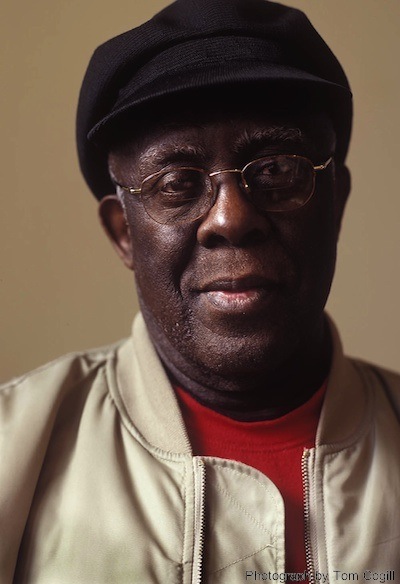
Charles T. Oliver
Former Music Director, Loyal Baptist Church
(b. 1934)
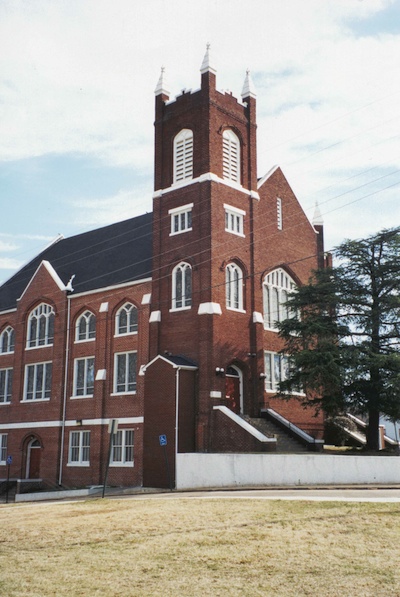
Charles T. Oliver played the Moller organ at Loyal Baptist Church, above, founded in 1865 by freed slaves.
Photo: Emma C. Edmunds
In the segregated 1940s, 1950s, and 1960s, Loyal Baptist was a site for school graduations and plays, community events and mass meetings. During that time, the pastor, the Reverend Doyle Thomas, Sr., was the longtime president of the local branch of the National Association for the Advancement of Colored People (NAACP). The youth group of the NAACP met at the church, and in April 1960 the young people marched from Loyal Baptist to a sit-in at the segregated Danville Memorial Library. In the fall of 1963, Rev. Thomas helped negotiate with white leaders for the appointment of the city’s first African-American policeman since 1883. Under Rev. Thomas’s leadership, the congregation was home to more than a dozen societies and organizations for civic, religious, and social purposes: Missionary Circle, Senior Choir, Gospel Chorus, Fifty-Year Plus Members, Galeda Class, Metoka Class, Pastor’s Aid, Deaconess Board, Fidelis Class, and the Girls Ensemble among them.
The congregation is smaller now, the classes and circles not so numerous; African-Americans are part of the political life of the city. But for Charles Oliver, there was a thread of continuity in all the changes at Loyal Baptist—the music making that occurred each Sunday.
“Times change, but we are still singing for the glory of God, not man.”
—Charles T. Oliver
- Interview Excerpts
- Related Resources
- Biography
Interview excerpts for Charles Oliver are not available. Gladys Hairston, a 2004 graduate of the University of Virginia, interviewed Mr. Oliver by telephone in 2005, but the conversation was not recorded.
Click on the image thumbnails below to view a larger version of the image.
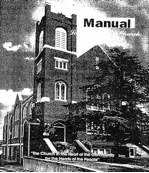
Loyal Baptist Church, Holbrook and Gay Streets.
Loyal Baptist Church is one of three prominent African-American churches in the Holbrook-Ross neighborhood: Calvary Baptist Church, 218 Holbrook Street, 1895; Holbrook Street Presbyterian Church, 353 Holbrook, 1910; and Loyal Baptist, at the corner of Gay and Holbrook streets, 1924. The roots of Loyal Baptist extend to 1865, when former slaves gathered to worship in an old hospital building on Hospital Hill or Dance Hill (in the area of Franklin and Cabell streets). In 1870 the congregation called its first pastor, the Reverend Stephen Geary, and moved to a new building, changing the church’s name to Loyal Street Baptist Church to reflect its relocation to Loyal Street. [Sources: Manual: Loyal Baptist Church, Loyal Baptist Church; National Register of Historic Places Registration Nomination: Holbrook-Ross Street Historic District, 1997.]
Image from cover of Manual: Loyal Baptist Church, circa 2000.
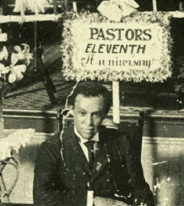
The Reverend Alexander A. Galvin.
The Reverend Alexander Galvin served as pastor of Loyal Street Baptist Church from 1902 to 1919; he is pictured here on his eleventh anniversary. Rev. Galvin was known for the great revivals he conducted; in 1917 more than 300 people were converted. In World War I, under his leadership, Loyal Baptist opened its doors to soldiers who were brought from the Southern Railway Station to the church to be prayed for or quartered for the night. When he resigned after seventeen and a half years as pastor, the congregation was 900 strong, and the treasury had $5,000 saved for a new building. Rev. Galvin later became president of Virginia Baptist Seminary and College, Lynchburg, Virginia. [Source: Manual: Loyal Baptist Church, Loyal Baptist Church, circa 2000.]
Photograph. Courtesy of Cleophia Fitzgerald. Danville, Virginia.
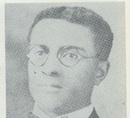
The Reverend Dr. C. T. Murray.
The Reverend Dr. C. T. Murray led Loyal Street Baptist Church in its move from Loyal Street between two warehouses to Holbrook Street. On Loyal Street, the church was near the courthouse and the jail and was surrounded by businesses; on the ground floor of the warehouses were stables where horses and mules were quartered year round, producing a stench in the summers. He advocated for the Holbrook Street location, and the current church was built in 1923 to 1924 at a cost of $100,000. The name was changed from Loyal Street Baptist Church to Loyal Baptist Church. [Source: Manual: Loyal Baptist Church, Loyal Baptist Church, circa 2000.]
Image from Loyal Baptist Church 86th Anniversary Program. Courtesy of N. J. Chaney.
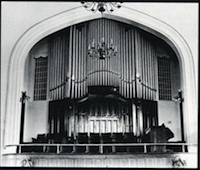
Moller Organ, Opus 652, in Loyal Baptist Church (built circa 1906).
The Moller organ at Loyal Baptist Church was originally located at the First Baptist Church in Danville. When First Baptist installed a larger organ in 1946, Loyal Baptist purchased the organ for $2,100 and signed a contract with the Moller Organ Company, Hagerstown, Maryland, to move it and reinstall it at Loyal Baptist for $2,500. Among those witnessing the contract was Alexander Owens, organist and music director of Loyal Baptist for more than a half century. [Source: Four Organs of Historical Interest in Danville and Chatham, Virginia, 1981.]
Image from pamphlet, Four Organs of Historical Interest in Danville and Chatham, Virginia, 1981.
Courtesy of Mozelle Wade, Danville, Virginia.
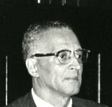
The Reverend Doyle John Thomas, Sr.
In 1946 the Reverend Doyle J. Thomas (1916-94) joined Loyal Baptist Church as pastor; he served at Loyal Baptist for forty-eight years, the longest pastorship in the church’s history. Before he became its pastor, the Loyal Baptist congregation had borrowed $7,000 to renovate the church and install the Moller organ. By 1952 (and the 86th anniversary of the church), the mortgage was paid off and the organ and new oil burner were installed. Rev. Thomas led the church through three major renovations and nurtured a large, well-organized, and influential congregation. The church served as a community center as well as a place of worship. Rev. Thomas served as president of the Danville branch of the NAACP for twenty-six years.
Photograph courtesy of Fannie (Mrs. Alexander) Owens. Danville, Virginia.
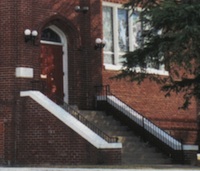
The Citizenship School, Danville Christian Progressive Association (1963).
On October 2, 1963, Dorothy E. Moore of the Danville Christian Progressive Association (DCPA), 226 North Union Street, Danville, wrote to Dorothy Cotton at the Southern Christian Leadership Conference, 334 Auburn Avenue, Atlanta, stating that DCPA had started a citizenship school at Loyal Baptist Church, the largest Negro congregation in the city. Students were to be introduced to the citizenship training program, then assigned to other classes at the church. Because a boycott [of white businesses] was in effect, she wrote, shopping was limited and supplies expensive. She requested $570 to start the classes.
Image from photograph. Emma C. Edmunds, circa 2003.
Charles T. Oliver has been a church musician from an early age. Born in Danville on October 23, 1934, he learned to play the piano at age five and at ten played for a children’s choir at Trinity Baptist Church, formed in 1902 by twenty-eight disaffected members of Loyal Street Baptist Church. A lifelong member of Trinity Baptist, Mr. Oliver has served there as director of the youth singing group, minister of music, and superintendent of the Sunday school. In 1998 he disagreed with a change in the direction of Trinity’s music ministry, and joined Loyal Baptist as minister of music from 1998 to 2007, while retaining his membership at Trinity and continuing as superintendent of the Sunday school. On his resignation from Loyal Baptist, he resumed his position as minister of music at Trinity Baptist. Mr. Oliver played semipro baseball and coached Little League after his graduation from John M. Langston High School in 1953. He worked for the Danville Parks and Recreation Department from 1963 until his retirement in 2010 as a recreation supervisor for senior citizens.
